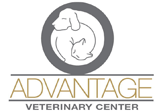A Growing Concern: Pet Obesity
Slipping your sweet pet a morsel of whatever you’re eating or offering a liberal amount from their treat jar is a daily occurrence for many of us. After all, nothing makes our furry friends happier than food, right? But when your pet gets too much of a good thing, the pounds can creep on, and this affects their health. If you can prevent pet obesity and keep them at an ideal weight, they have a better chance at a longer and healthier life.
Pet obesity is quickly becoming a major problem for our nation’s dogs and cats – studies show that over 50% of pets in the US are either overweight or obese. What’s more, as many as 95% of pet owners with overweight pets perceive their pet as falling within a healthy weight range. This disconnect is concerning and shows the veterinary community that we need to do a better job in educating pet owners about identifying and preventing pet obesity.
Fortunately pet obesity is recognizable and preventable, and we may even be able to reverse the condition. To that end, Advantage Veterinary Center gives you our best tips on pet obesity and nutrition.
Consequences of Pet Obesity
Whatever the reason for a pet being overweight, the unfortunate truth is that their health is in danger. Pet obesity has been linked to the following conditions:
- Diabetes
- Arthritis and joint disease
- High blood pressure
- Heart disease and respiratory problems
- Cancer
- Kidney disease
Is My Pet Overweight?
People don’t pack on the pounds overnight, and the same is true of our pets. Because weight gain is gradual, and we see our pets every day, it might be difficult to know that your pet is overweight. Your veterinarian can assess your pet’s weight and body condition at their annual preventive care exam. We’ll make recommendations based on your pet’s age, activity level and breed that may include a weight loss program.
What’s Next? Pet Obesity and Nutrition
If you receive a weight loss recommendation for your pet, take heart. It’s not a reflection on you or your ability to care for your pet, it’s simply your veterinarian’s commitment to your pet’s good health.
Pet obesity must be treated slowly. Proper nutrition and exercise are both important. Your veterinarian will give you some specific help and ideas that may include:
Nutrition recommendation – just as in people, feeding a high quality diet can help your pet to feel their best. A good commercial pet food is balanced in the proper nutrition your pet needs without unnecessary fat or other additives. Ask us for our recommendations on this very confusing subject.
Learn about portion control – once we’ve found the right food for your pet, we need to determine the proper amount to feed. This is specific to your pet’s breed, age, and overall health as well as the type of food we’re feeding.
Measure, measure, measure – much of the time, obesity is made worse by free feeding. While it’s easy to fill your pet’s bowl and refill it when it’s empty, this is problematic for weight management. We can give you a measuring cup, and recommend measuring your pet’s food at every meal.
Treat them well – for many pets and pet owners, treats are a way of life! But treats can be full of calories and fat, and can quickly derail your weight loss efforts for your pet. Try cutting up small amounts of raw fruits and veggies like carrots, green beans, and apples as healthy alternatives to store bought treats.
Celebrate the wins! – checking progress is a great way to stay on track and celebrate weight loss, if that’s what your goal is for your pet. Come in to weigh your pet when you like, and we’ll note any changes in your pet’s medical record. Together we can make sure your pet stays on track and make any adjustments along the way.
Reaching and maintaining a healthy weight is an important way to give your pet a longer and healthier life. Having some fun together along the way is an added bonus! If you’d like more help or to schedule care exam for your pet, please don’t hesitate to contact us.
